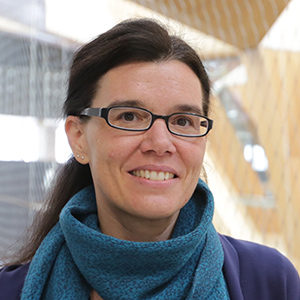Speakers

Prof. Christine Wamsler
Sustainability Science Professor, Director of Contemplative Sustainable Futures Program, Lund University
Christine Wamsler is Professor of Sustainability Science at Lund University Centre for Sustainability Studies (LUCSUS), Founder and Director of the Contemplative Sustainable Futures Program, a Mind & Life Fellow, and former Co-Director of the Societal Resilience Centre. She is an internationally-renowned expert in sustainable development and associated (cognitive and material) transformation processes, with 25 years of experience, both in theory and practice. Christine is leading the emergent field of inner transformation, mindfulness and sustainability; she has co-developed related theories, approaches, leadership and educational programs for climate action, sustainability and transformation (e.g., MBST and MBST-TT programs). Her work has shaped international debates and increased knowledge on personal, collective, institutional and policy transformations in a context of climate change. She has led many international projects, and published more than 200 academic papers, book chapters, and books on these issues. Her publications are regularly cited and used in theory and policy development, including by the Intergovernmental Panel on Climate Change (IPCC) and the Intergovernmental Science-Policy Platform on Biodiversity and Ecosystem Services (IPBES). Christine serves as a senior scientific advisor for the UNDP Conscious Food Systems Alliance, the Global Compassion Coalition, the Inner Green Deal, the Inner Development Goals (IDGs) Initiative; and the Science Centre (Science Village). Her workplace, LUCSUS, is a pioneer in transdisciplinary research and collaboration that combines critical perspectives with solutions-based approaches to address sustainability challenges.
Plenary Keynote Address (4) - Environmental and social sustainability
Professor Christine Wamsler’s presentation focuses on the nexus between mind(fulness) and sustainability. She discusses how we can address today’s polycrisis and the role mindfulness and contemplative practices play in this context. Sustainability science and practice are about finding solutions to complex, global challenges that threaten the existence of humanity and the planet. Examples of such existential threats are climate change, biodiversity loss, social disparity and global health pandemics. These threats are generally framed as external to us, and therefore, sustainability work tried to address them with primarily external, technical measures. At the same time, we increasingly understand that these threats are a reflection of an inner, human crisis, a kind of alienation, which is an integral element of modern life forms. Mindfulness and contemplative approaches are therefore increasingly explored and applied across different sectors and contexts. Christine Wamsler’s work explores if, and how, they can foster individual, collective and planetary wellbeing and become vehicles for culture and system transformation.
back